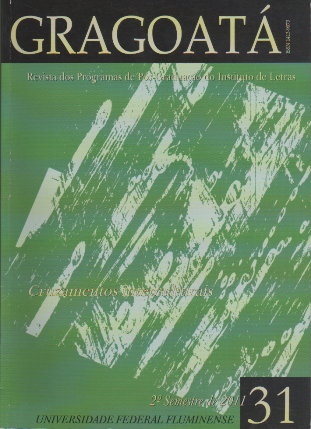Melancholia of deconstruction
DOI:
https://doi.org/10.22409/gragoata.v16i31.33047Keywords:
Derrida, deconstruction, mourning, metaphysicsAbstract
This paper addresses Derrida´s texts on “the work of mourning”, in which the philosopher, borrowing from psychoanalytic theory, postulates a distinction between mourning as a “normal” process of introjection of the lost object, and its pathological forms, in which mourning does not succeed. Failure to mourn is paradoxically more respectful of the dead Other than the so-called “normal” or “successful” mourning. Derrida´s inclination for pathological mourning would be restated by a “melancholia of deconstruction”, which reveals his impossibility to take leave of western metaphysics. The critical trajectory of deconstruction thus seems to envisage a type of philosophical parricide, itself a last tribute paid to the dead master.
Downloads
Downloads
Published
How to Cite
Issue
Section
License
Authors who publish in Gragoatá agree to the following terms:
The authors retain the rights and give the journal the right to the first publication, simultaneously subject to a Creative Commons license CC-BY-NC 4.0, which allows sharing by third parties with due mention to the author and the first publication by Gragoatá.
Authors may enter into additional and separate contractual arrangements for the non-exclusive distribution of the published version of the work (for example, posting it in an institutional repository or publishing it in a book), with recognition of its initial publication in Gragoatá.

Gragoatá is licensed under a Creative Commons - Attribution-NonCommercial 4.0 International.











